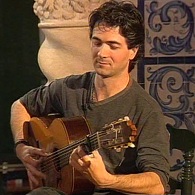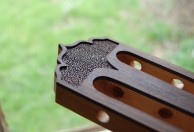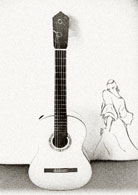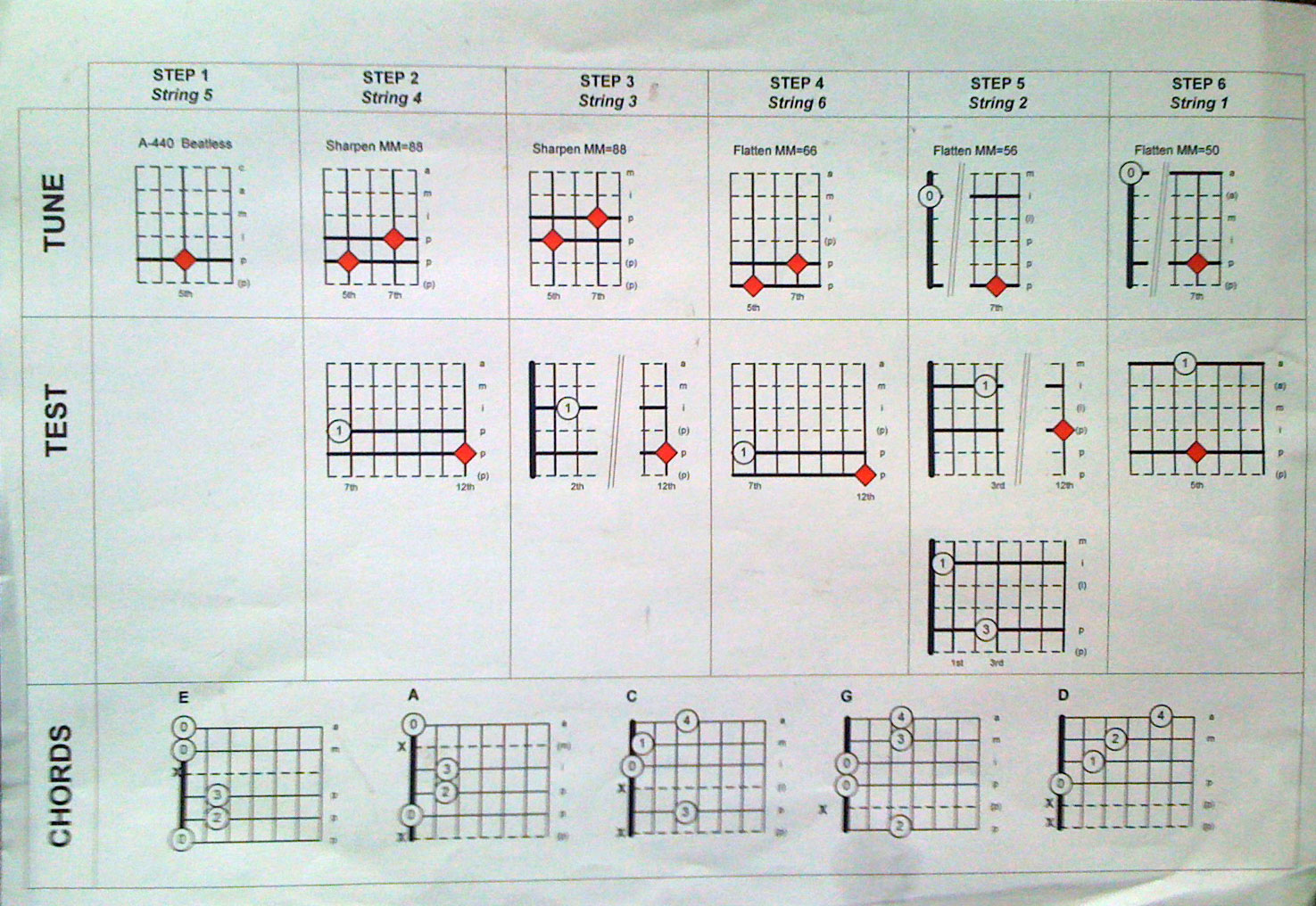Welcome to one of the most active flamenco sites on the Internet. Guests can read most posts but if you want to participate click here to register.
This site is dedicated to the memory of Paco de Lucía, Ron Mitchell, Guy Williams, Linda Elvira, Philip John Lee, Craig Eros, Ben Woods, David Serva and Tom Blackshear who went ahead of us.
We receive 12,200 visitors a month from 200 countries and 1.7 million page impressions a year. To advertise on this site please contact us.
|

|
|
fine tuning E chord
|
You are logged in as Guest
|
|
Users viewing this topic: none
|
|
Login  | |
|

   
mark indigo
Posts: 3625
Joined: Dec. 5 2007

|
 RE: fine tuning E chord (in reply to Ricardo) RE: fine tuning E chord (in reply to Ricardo)
|
|
|
quote:
We discussed this much in the passed.
ah, yes, of course. although i nearly always now check the archive before starting a new thread, i often forget in mid conversation....
having checked the archives I now also understand why the major thirds sound sharp - 'cos of tempering.
also, two other things, harmonics and fretted notes:
re harmonics, i find an explanation of why not to tune with harmonics;quote:
Cycle of fifths does not resolve to a note which is the same as the starting note.
How so, well take a guitar low E string, divide it in three and you get a B one octave and a fith higher (which you can tune your B string to). Take a new string tuned to that note and repeat the procedure, so, E,B,F#,C#,G#,D#,A#,F,C,G,D,A and back to E.
Now when you divide your string in two you get an octave (the same note again higher, exactly twice the frequency) now the E (or any other note) that you get when you go up the cycle of fifth actually has a DIFFERENT frequency (is a slightly different note )than the one that you get by doubling continually. Play the two together and it is pretty appalling. This is fundamentally why tuning on any instrument is a compromise and why it is sometimes a very bad idea to tune your guitar with harmonics.
and re fretted notes
quote:
I reiterrate DON"T TUNE TO CHORDS....tune the open strings only.
the basic method of tuning involves fretting a note on the 5th fret and tuning the open string above it, so that would put that method out, the only option would be tune to electric tuner, pitch pipes, set of 6 tuning forks or piano.
i guess what you are reiterating is;
quote:
Over the years I have learned to stay away from fine tuning to chords. In fact I try to keep my left hand OFF the fingerboard all together when tuning. You would be surprised how the slightest left hand pressure can affect the precision of tuning. And in the end, you can actually play MORE in tune by the the way you finger certain notes and chords. It takes many years to develop the feel, and hear the difference.
i never heard of this before, so i thought i would check it out and see if i could hear the difference. I tuned my low E with digi tuner, exact. Then fretted an A at 5th fret of that string. I pressed really hard, A exact. I barely touched it. A exact. I played right up behind the fret. A exact. I played as far back from the fret as I could get. A exact.
Then i repeated with tuning A string to tuner and fretting D at 5th fret. Same thing. I can't hear a difference in pitch either, even though the sound quality changes (it buzzes more further back or with light pressure)
Either I'm not doing this right, or the tuner is wrong or not accurate enough, or my guitar's action is so low finger pressure it doesn't make a difference - maybe it makes more difference on your guitar/s?
Now i think maybe it stands to reason, that as long as the string goes over the FRET that is where the string length determines the pitch, never mind how far behind it (as long as it's in the fretspace behind) or how hard i press.
I could be wrong, but based on the information i have at present, that's what it looks like. 
|
|
|
|
REPORT THIS POST AS INAPPROPRIATE |
Date Aug. 27 2010 11:22:15
 |
|
 New Messages New Messages |
 No New Messages No New Messages |
 Hot Topic w/ New Messages Hot Topic w/ New Messages |
 Hot Topic w/o New Messages Hot Topic w/o New Messages |
 Locked w/ New Messages Locked w/ New Messages |
 Locked w/o New Messages Locked w/o New Messages |
|
 Post New Thread
Post New Thread
 Reply to Message
Reply to Message
 Post New Poll
Post New Poll
 Submit Vote
Submit Vote
 Delete My Own Post
Delete My Own Post
 Delete My Own Thread
Delete My Own Thread
 Rate Posts
Rate Posts
|
|
|
Forum Software powered by ASP Playground Advanced Edition 2.0.5
Copyright © 2000 - 2003 ASPPlayground.NET |
7.788086E-02 secs.
|


 Printable Version
Printable Version















 )
) 
 )
)  New Messages
New Messages No New Messages
No New Messages Hot Topic w/ New Messages
Hot Topic w/ New Messages Hot Topic w/o New Messages
Hot Topic w/o New Messages Locked w/ New Messages
Locked w/ New Messages Locked w/o New Messages
Locked w/o New Messages Post New Thread
Post New Thread